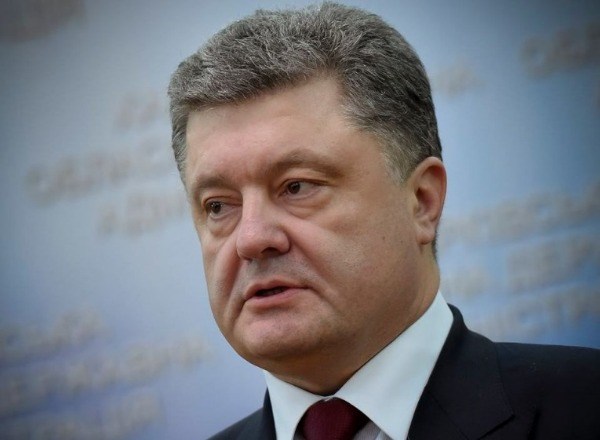Ukrainian President: Friendship treaty with Russia is expiring, not being broken off
During a meeting with Verkhovna Rada party leaders in the Presidential Administration, Ukrainian President Petro Poroshenko said that the Treaty on Friendship, Cooperation and Partnership between Ukraine and Russia is not being broken off, it is expiring due to not being extended.
“I emphasize that it [the agreement] is not being broken, because that is a complicated and long process, but it is ceasing to be valid in connection with non-extension,” he said.
According to him, making the corresponding decision is exclusively the competence of the president of Ukraine.
“In this regard, I plan soon after submitting proposals to the Foreign Ministry to hold an NSDC session and by September 30 to send a notice to Russia with my signature on the non-extension of the validity of the mentioned agreement,” the president noted.
He added that the decision does not require voting in parliament.
“But, of course, I would like to hold consultation on this in order to take into account the position and opinion of parliament and the NSDC,” the president said.
As previously reported, during a meeting with the heads of Ukraine’s foreign diplomatic institutions, Poroshenko announced that he had instructed the Ukrainian Foreign Ministry to prepare for the termination of the primary friendship agreement with Russia.
Earlier, the Foreign Ministry prepared suggestions for the president on withdrawing from the Commonwealth of Independent States (CIS) and the denunciation of the Russian-Ukrainian Friendship Treaty.
Poroshenko himself said in April that he would advise the Verkhovna Rada to revoke only individual provisions of the treaty. At the same time, he said that the treaty could not be revoked entirely, since it contains provisions on the mutual respect of territorial integrity and the inviolability of existing borders that are important to Ukraine.
According to him, the revocation will apply to the articles on strategic partnership between Ukraine and Russia, the provisions on bilateral collaboration in the military sphere, and Ukraine’s complete withdrawal from the statutory bodies of the CIS.
In January, Russia’s State Duma proposed to denounce the treaty, in particular with respect to the recognition of borders.
The treaty was signed on May 31, 1997 and came into effect on April 1, 1999. According to article 40 of the treaty, it is valid for 10 years. After the 10 year period, it is automatically extended for subsequent 10-year periods, unless one of the parties expresses a desire to terminate it at least six months before the end of the previous period.
The treaty establishes the principle of strategic partnership, recognition of the inviolability of existing borders, respect for territorial integrity and the mutual obligation not to use one’s own territory to harm the security of the other.
